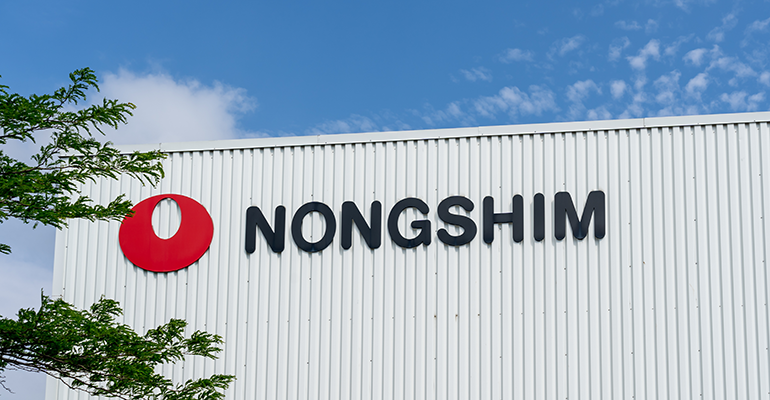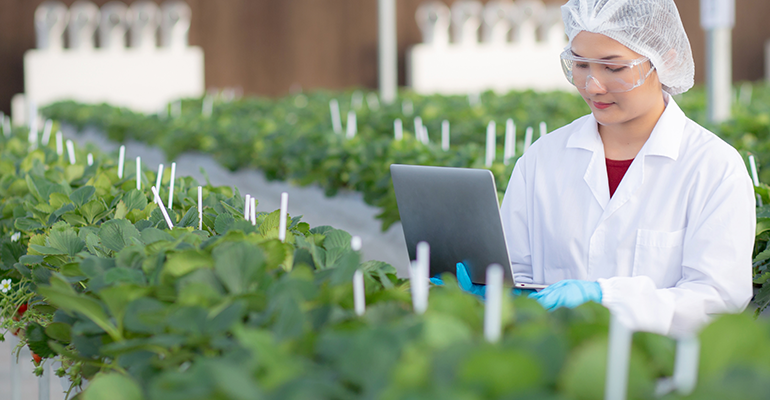News
South Korea’s Nongshim invests €6.9m in food tech
21 Nov 2023South Korean multinational food and beverage firm Nongshim, which has a range of plant-based products, is to invest €6.9m ($7.4m) in food tech such as vertical farms and cultivated meat.
The makers behind the Shin Ramyun noodle brand will provide funds for two Seoul-based startups managed by Stonebridge Ventures and IMM Investment, as Nongshim looks to ramp up its interest in firms disrupting the food value chain.

Speaking to newspaper Korea JoongAng Daily, a spokesperson for Nongshim said: “Investment in startups was decided following internal reviews.
“But we’re investing through specialised investment funds to conduct a more in-depth evaluation and to explore more deeply.”
The company added that it was looking to discover “new growth engines” by investing in startups with fresh technologies and ideas.
Nongshim’s food-tech investments in alt-meat and smart strawberry farms
Nongshim’s alternative meat interests include Veggie Garden, its own brand of vegan friendly foods ranging from bibimbap and bulgogi to grilled steak, dumplings and cheese.
The multinational’s efforts in streamlining agricultural product cultivation and distribution continued earlier this year with an agreement with Saudi Arabia to export smart farms .
In a similar deal with the United Arab Emirates (UAE), the agreement saw Nongshim ink a €28m ($30m) project in which it would install smart farms in the country that produce South Korean varieties of strawberries all year round.
 © AdobeStock/N_studio
© AdobeStock/N_studio
Nongshim’s interests in future food technology comes at a time where the South Korean region has been recognised as an alternative food hub, thanks to the hive of investment activity that looks to satisfy growing consumer demand for meat alternatives.
In February this year, Taekyung Nongsan, a Nongshim-owned brand, launched its ready-to-eat meat alternative products via the supermarket GS Retail and its network of 25 convenience stores throughout Korea.
SK Group’s personal endorsement of alt-meat initiatives
The alternative food industry received a vote of confidence from Chey Tae-won, chair of South Korea’s second largest business group SK Group, who posted on his personal Instagram account images of fermented protein ice cream and cell-cultivated salmon.
“How would human life and the environment of the earth change if we could eat fish sustainable and have the same taste and nutrition without killing the life of fish?,” he posted.
“Cell-cultivated fish does not have fatal health issues such or antibiotics found in natural and formulated fish, but they are rich in nutrients that our bodies need, such as omega3, proteins, vitamins and calcium.
“Bycatching, we can dramatically reduce CO2 emitted from fishing and transportation processes and protect endangered marine ecosystems.”
Korean alt-meat firms received official guidance in 2022
According to recent reports, Korean alt-meat companies are rivalling the country’s infotech startups, with several raising over €3.5m (5bn won) in 2022.
 Pictured: Grilled plant-based burger | © AdobeStock/barmalini
Pictured: Grilled plant-based burger | © AdobeStock/barmalini
Additional data from earlier this year, indicates a 35% growth of the Korean alt-meat market between 2020 and 2021, reaching a value of €12.9m ($13.9m).
The rise in interest could well have stemmed from an official endorsement last year with the country’s Ministry of Food and Drug Safety inserting guidance for alt-protein in its National Plan.
The Plan outlines details on how the safety and manufacturing processes of cultivated meat will be evaluated with a view to introducing regulatory approval in the not-to-distant future.
The Good Food Institute, a US-based nonprofit think tank has hailed South Korea as a “global hotbed of alternative protein innovation,” spearheaded by firms such as Unlimeat, Lotteria, Armored Fresh and Yangyoo contributing to the region’s thriving industry.